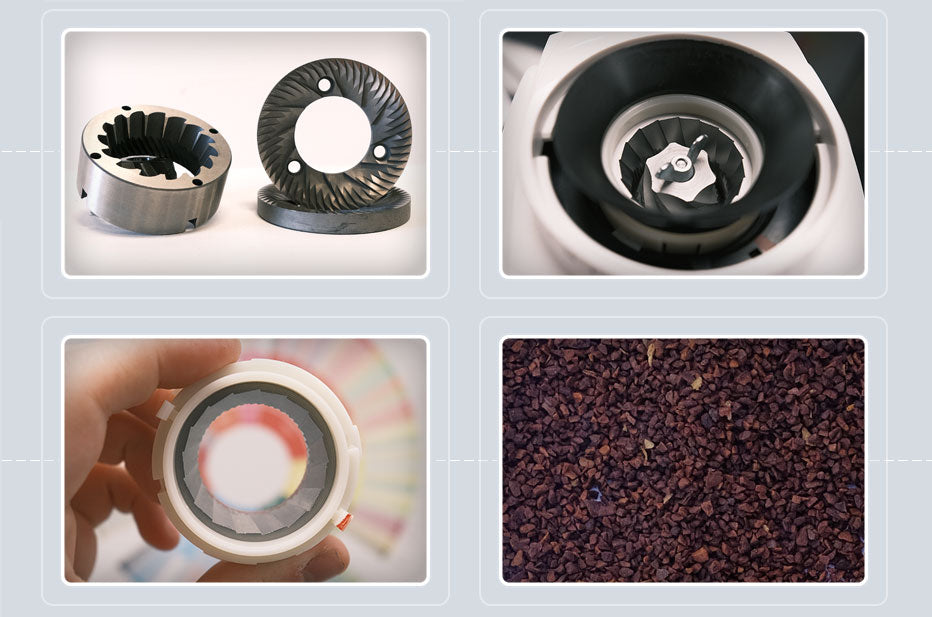Intro to Coffee Grinders
So why would you grind your coffee? The shop will do it for you, right?
Well yes, but ground coffee exposed to air will begin to oxidize and lose flavor in approx. 60 seconds. On top of that, all the gas trapped inside the beans from roasting is released rapidly. That gas is what makes crema in espresso, and a lovely bloom in drip coffee. So by grinding fresh, we preserve the flavor of the beans!

Blade Coffee Grinders
Now blade grinders or burr grinders? Well, there's a little experiment you can do at home. Grab a knife and try to chop up a coffee bean such that all the pieces are the same size. Spoiler, it's just about impossible. Blade grinders don't offer uniform coffee grounds, and as such, when you make your coffee, it will be different every time due to the changes in grind size.

Burr Coffee Grinders
The solution is a burr grinder or coffee mill. These are similar to flour mills and grind your coffee to a precise size. That precise size allows you to extract more flavor from your coffee and have a more consistent cup every time. An even grind means your dissolved coffee flavors are also even.
Your blade grinder is still useful, though! Just not if you want a consistent, delicious cup of coffee.

What Kind of Burr Grinder?
So you're on the lookout for a burr grinder, is it for espresso or drip coffee? Espresso grinders often have things like timers, porta filter forks, and stepless adjustment. Stepless means you can adjust as much or as little as you want, and timers help get the same amount of coffee every time.
Drip coffee or all-purpose grinders sometimes are more rudimentary in features, but at a much lower cost. They are usually stepped adjustment grinders, which means it's easy to change between different coffee brew methods settings.
The last thing to look out for is the weight. Just like your dad might lift a power tool from the 1960s and exclaim to you, "they don't make 'em like this anymore," somehow implying quality, heavier grinders do mostly equate to quality. Generally speaking, that weight comes from either metal parts or a bigger motor, both of which are beneficial to the grinder's lifespan.
Checklist for your Grinder
- Is it meant for your brew method?
- Is it heavy? (the heavier, the better, think large watermelon kind of weight.)
- Does it have grinding burrs?



